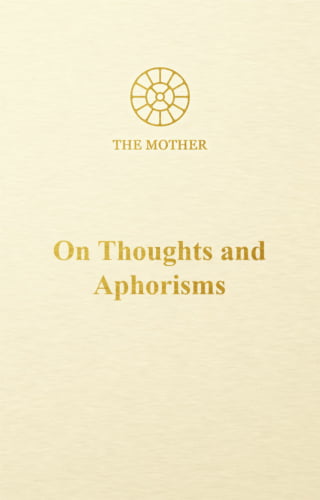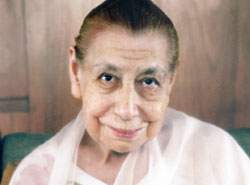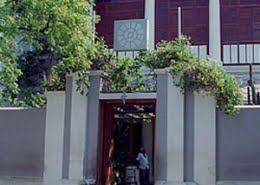On Thoughts and Aphorisms (CWM Vol.10)
On Thoughts and Aphorisms
Collected Works of the Mother Volume 10
The Mother’s commentaries on Sri Aurobindo’s Thoughts and Aphorisms were given over the twelve-year period from 1958 to 1970. The commentaries may be divided into four periods according to date, character and form.
- Aphorisms 1–12 (1958). Oral replies to questions submitted beforehand in writing by the students, teachers and sadhaks of the Ashram during the Mother’s Wednesday classes at the Ashram Playground.
- Aphorisms 13–68 (1960–61). Replies, mostly written, a few oral, to questions written to the Mother by a young instructor of the Ashram’s physical education department.
- Aphorisms 69–124 (1962–66). Oral replies to a disciple. During this period the Mother digressed more and more from direct commentary on the aphorisms and used the occasions to explain the experiences she was having at the time.
- Aphorisms 125–541 (1969–70). Brief written replies to questions asked by the instructor mentioned above.
Sri Aurobindo wrote these aphorisms around 1913 during the early part of his stay in Pondicherry. Never revised or published during his lifetime, they were first brought out in 1958 under the three headings established by the author: Jnana (Knowledge), Karma (Works) and Bhakti (Devotion).
Book Details
Author: The Mother
Print Length: 388 pages
Publisher: Sri Aurobindo Ashram
Book format: PDF, ePub, Kindle
Language: English
Book Download
Contents
- Jnana (Knowledge). First period of commentaries (1958)
- Jnana (Knowledge). Second period of commentaries (1960-61)
- Jnana (Knowledge). Third Period of Commentaries (1962-66)
- Jnana (Knowledge). Fourth Period of Commentaries (1969)
- Karma (Works). Fourth period of commentaries (1969-70)
- Bhakti (Devotion). Fourth period of commentaries (1969-70)
Book Sample
On Thoughts and Aphorisms
1 – There are two allied powers in man: knowledge and Wisdom. Knowledge is so much of the truth, seen in a distorted medium, as the mind arrives at by groping; Wisdom what the eye of divine vision sees in the spirit.
Someone has asked me, “Why are the powers allied?”
I suppose that we are so used to seeing all the elements in man quarrelling among themselves that the idea of their being “allied” causes astonishment. But these quarrels are only apparent. All the powers which come from the higher regions are in fact necessarily allied — they are united, they have agreed to fight the Ignorance. And Sri Aurobindo says clearly enough — for those who understand — that one of these powers belongs to the mind and that the other belongs to the Spirit. This is precisely the profound truth that Sri Aurobindo wants to reveal in his aphorism: if the mind tries to obtain the second power, it is unable to do so, since it is a power that belongs to the Spirit and arises in the human being together with the spiritual consciousness.
Knowledge is something that the mind can obtain through much effort, although this is not the true knowledge, but only a mental aspect of knowledge; whereas Wisdom does not at all belong to the mind, which is altogether incapable of obtaining it, because, in fact, it doesn’t even know what it is. I repeat, Wisdom is essentially a power of the Spirit and it can arise only with the spiritual consciousness.
It would have been interesting to ask what Sri Aurobindo means when he speaks of “the truth seen in a distorted medium”. First of all, what is this “distorted medium”, and what does the truth become in a “distorted medium”?
As always, what Sri Aurobindo says can have several levels of meaning — one is more specific, the other more general. In the most specific sense, the distorted medium is the mental medium which works in ignorance and which is therefore unable to express truth in its purity. But since life as a whole is lived in ignorance, the distorted medium is also the earth-atmosphere which, in its entirety, distorts the truth seeking to express itself through it.
And here lies the most subtle point of this aphorism. What can the mind arrive at by groping? We know that it is always groping, seeking to know, erring, returning upon its previous attempts and trying again… Its progress is very, very halting. But what can it grasp of the truth? Is it a fragment, a piece, something which is still the truth, but only partially, incompletely, or is it something which is no longer the truth? That is the interesting point.
We are used to being told — perhaps we have also repeated many times — that one can only have partial, incomplete, fragmentary knowledge which therefore cannot be true knowledge. This point of view is rather trite: one need only to have studied a little in life to be aware of it. However, what Sri Aurobindo means by “the truth seen in a distorted medium” is far more interesting than that.
Truth itself takes on another aspect; in this medium it is no longer the truth, but a distortion of the truth. Consequently, what can be seized of it is not a fragment which would be true, but an aspect, the false appearance of a truth which has itself melted away.
I am going to give you an image to try to make myself understood; it is nothing more than an image, do not take it literally.
If we compare the essential truth to a sphere of immaculate, dazzling white light, we can say that in the mental medium, in the mental atmosphere, this integral white light is transformed into thousands and thousands of shades, each of which has its own distinct colour, because they are all separated from one another. The medium distorts the white light and makes it appear as innumerable different colours: red, green, yellow, blue, etc., which are sometimes very discordant. And the mind seizes, not a little fragment of the white light of the white sphere, but a larger or smaller number of little lights of various colours, with which it cannot even reconstitute the white light. Therefore it cannot reach the truth. It does not possess fragments of truth, but a truth that is broken up. It is a state of decomposition.
The truth is a whole and everything is necessary. The distorted medium through which you see, the mental atmosphere, is unsuited for the manifestation or the expression or even the perception of all the elements — and one can say that the better part is lost. So it can no longer be called the truth, but rather something which in essence is true, and yet no longer so at all in the mental atmosphere — it is an ignorance.
So, to summarise, I shall say that knowledge, as it can be grasped by the human mind, is necessarily knowledge in ignorance, one could almost say an ignorant knowledge.
Wisdom is the vision of truth in its essence and of its application in the manifestation.
12 September 1958
…




